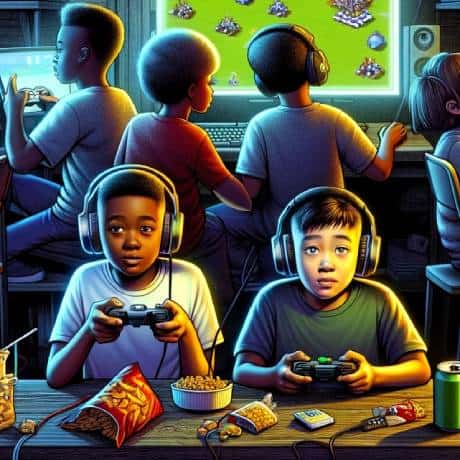
Artificial Intelligence (AI)
AI is fundamentally reshaping our world and holds the potential to revolutionize countless aspects of human life. Therefore, staying informed about AI’s latest developments, applications, and ethical considerations is essential to understanding its impact on society and preparing for a future driven by this transformative technology.
Table of Contents
The Emergence of Advanced AI Technologies
 Artificial intelligence transforms how machines interact with humans, allowing them to comprehend and respond with unparalleled sophistication. AI technology has become integral to contemporary technological advancements, from personal digital assistants that recognize natural speech patterns to computer vision systems capable of interpreting intricate objects and environments. Moreover, artificial intelligence is paving the way for a groundbreaking computing landscape in various domains by emulating cognitive functions previously unique to human brains.
Artificial intelligence transforms how machines interact with humans, allowing them to comprehend and respond with unparalleled sophistication. AI technology has become integral to contemporary technological advancements, from personal digital assistants that recognize natural speech patterns to computer vision systems capable of interpreting intricate objects and environments. Moreover, artificial intelligence is paving the way for a groundbreaking computing landscape in various domains by emulating cognitive functions previously unique to human brains.
As AI evolves rapidly, it is crucial to stay informed about its developments and applications. Here are some key aspects to consider:
-
Artificial Intelligence Platforms: AI platforms are frameworks and tools that facilitate AI application development, deployment, and management. They enable developers to create intelligent systems by providing access to pre-built algorithms, libraries, and APIs. Some popular AI platforms include TensorFlow, PyTorch, Microsoft Azure Machine Learning, and IBM Watson.
-
Machine Learning and Deep Learning: Machine learning, a subset of AI, involves training algorithms to recognize patterns and make decisions autonomously. Deep understanding, a specialized form of machine learning, leverages neural networks to process large amounts of data and mimic human cognitive processes. These technologies drive advancements in various fields, including natural language processing, image recognition, and recommendation systems.
-
Ethics and AI: As AI becomes more integrated into our daily lives, ethical considerations grow increasingly important. Topics such as data privacy, algorithmic bias, and the impact of automation on employment must be addressed to ensure AI develops responsibly and equitably.
-
AI in Industry and Daily Life: AI has numerous applications across various industries, including healthcare, finance, retail, transportation, and education. It is also increasingly present in our daily lives, with voice-activated assistants, personalized recommendations, and smart home devices becoming commonplace.
-
Research and Development: AI research and development are progressing rapidly, with new techniques and breakthroughs emerging regularly. AI researchers are exploring reinforcement learning, generative adversarial networks (GANs), and unsupervised learning to further advance the field.
-
AI Policy and Regulation: As AI’s impact on society grows, governments and regulatory bodies must establish policies and guidelines to ensure its responsible use. This includes addressing concerns about data privacy, algorithmic transparency, and potential misuse of the technology.
-
Future Directions: The future of AI holds immense potential, with ongoing research exploring areas such as artificial general intelligence (AGI), human-AI collaboration, and brain-computer interfaces. These advancements may lead to previously unimaginable applications and have profound implications for the future of humanity.
Navigating the AI Revolution
 AI is not expected to take over all human jobs but will instead lead to a shift in the job market and how we work. While AI and automation may replace some jobs, particularly those involving repetitive tasks, they also have the potential to create new jobs and industries. We can leverage AI technology to enhance productivity, improve decision-making, and foster innovation.
AI is not expected to take over all human jobs but will instead lead to a shift in the job market and how we work. While AI and automation may replace some jobs, particularly those involving repetitive tasks, they also have the potential to create new jobs and industries. We can leverage AI technology to enhance productivity, improve decision-making, and foster innovation.
The key to navigating the impact of AI on the job market is to focus on reskilling and upskilling the workforce.
This includes:
- Lifelong learning and adaptability: Update your skills and adapt to new technologies to stay relevant in the job market.
- Human-AI collaboration: By learning how to collaborate with AI systems effectively, you can focus on tasks that require creativity, empathy, and critical thinking – areas where AI currently falls short.
- Encouraging innovation: As AI develops, new industries and job opportunities will emerge. Encouraging innovation and entrepreneurship will help create new roles that capitalize on AI technology.
So, by leveraging AI technology, focusing on adaptability, and investing in education and training, you can continue to thrive in the evolving job market or become an entrepreneur.
Chatting with AI
ChatGPT, a chatbot based on OpenAI’s GPT series, has significantly impacted various domains since its inception. Built on advanced natural language processing and understanding capabilities, ChatGPT has transformed how we interact with AI and has led to numerous applications:
- Enhanced Customer Support: ChatGPT has been employed in customer support roles, responding to user queries. This reduces the workload on human support agents and enhances overall customer satisfaction.
- Virtual Assistants: ChatGPT has contributed to developing more advanced virtual assistants, capable of understanding complex language patterns and providing relevant information or assistance. This has improved user experiences in voice-activated assistants and other AI-powered services.
- Content Generation and Editing: ChatGPT can generate coherent and contextually relevant content for various purposes, such as blog posts, social media updates, and marketing materials. Additionally, it can assist with editing and proofreading tasks, helping to improve the overall quality of written content.
- Language Translation: With its robust language understanding capabilities, ChatGPT can facilitate machine translation, helping break down language barriers and improve global communication.
- Education and Training: ChatGPT can be employed in educational settings, providing personalized learning experiences and answering students’ questions on various topics. It can also be used in training simulations, offering realistic conversational scenarios for language learning or professional development.
- Gaming and Entertainment: In gaming and entertainment, ChatGPT has been utilized to create more immersive experiences through realistic dialogues, dynamic storytelling, and interactive world-building.
- Accessibility: ChatGPT has the potential to make digital services more accessible to those with disabilities, such as by providing voice-based interfaces, transcribing spoken content, or generating audio descriptions for visual content.
The most recent iteration of ChatGPT, GPT-4, was launched on March 14, 2023, and can be accessed through its API as well as by premium ChatGPT subscribers. It is also being integrated with popular software such as Windows 365.
GPT-4
GPT-4 can address complex challenges with heightened precision, owing to its expansive general knowledge and enhanced problem-solving capabilities. Furthermore, as a more advanced language model, it can effectively comprehend and analyze a more comprehensive array of subjects, generating more accurate and relevant responses. Enhanced performance paves the way for various applications in various sectors, allowing GPT-4 to contribute substantially to diverse fields like natural language processing, data analysis, and decision-making assistance.
CoPilot (ChatGPT & Windows 365)
CoPilot integrates OpenAI’s ChatGPT technology with Microsoft’s Windows 365 cloud-based operating system.
Some of the key features and functionalities of Copilot include:
- Generating summaries of key discussion points from meetings held on Teams, providing recaps
- Crafting PowerPoint presentations, complete with images, based on user prompts
- Drafting emails
- Analyzing lengthy email threads and documents
- Creating summaries and visualizations of data on Excel spreadsheets
By incorporating ChatGPT’s AI technology into Microsoft 365, Copilot aims to improve productivity, efficiency, and collaboration across various workplace tasks, revolutionizing how users engage with their work software.
Mainstream AI Artwork Generation
 When thinking of AI Generative Artwork, you may think of MidJourney, NightCafe Studio, DALL·E 2, or similar that has recently become popular due to the ease of artwork generation based on prompts, such as the image of the Lion, which took under 1 minute to type the prompt and generate the image. Yet, now we have mainstream software from Adobe that has some amazing AI Generative, modification, and creative tools.
When thinking of AI Generative Artwork, you may think of MidJourney, NightCafe Studio, DALL·E 2, or similar that has recently become popular due to the ease of artwork generation based on prompts, such as the image of the Lion, which took under 1 minute to type the prompt and generate the image. Yet, now we have mainstream software from Adobe that has some amazing AI Generative, modification, and creative tools.
Adobe Firefly is a creative, generative AI model for Adobe products (Text to Image, Text Effects, Text to Vector, Recolor Vectors, Text to Pattern, 3D to Image, Text to Brush, Sketch to Image, Text to Template, Inpainting, Extend Image, Generation based on your Style, even Video and more).
Final Thoughts
Artificial intelligence (AI) is transforming human-machine interactions and becoming essential to modern technological advancements. Nowadays, you can become multi-skilled and effective with AI tools, and it’s time to start using them. Check out our list of AI Platforms.
To navigate the job market shift, focusing on reskilling, upskilling, lifelong learning, and human-AI collaboration is crucial.
As an entrepreneur, it’s essential to immerse yourself in both existing and emerging AI technologies to discover ways to capitalize on their potential.
Embark on shaping your future through the power of AI…
Author:
 |
Lionel Thomas Father, Gamer and Founder with a Passion for Health, AI, Environment and Gamification of Life. |
Author Tools:
- Grammarly (Spelling and Grammar)
- ChatGPT (Content Enhancements & Research)
- GSpeech (Audio by AI)
- Other Tools (AI)...
Artists:
- Lionel Thomas using Leonardo.ai [AI Generated] (Header, Content)








 Snacks
Snacks Water
Water Eye Sight
Eye Sight Hearing
Hearing

























